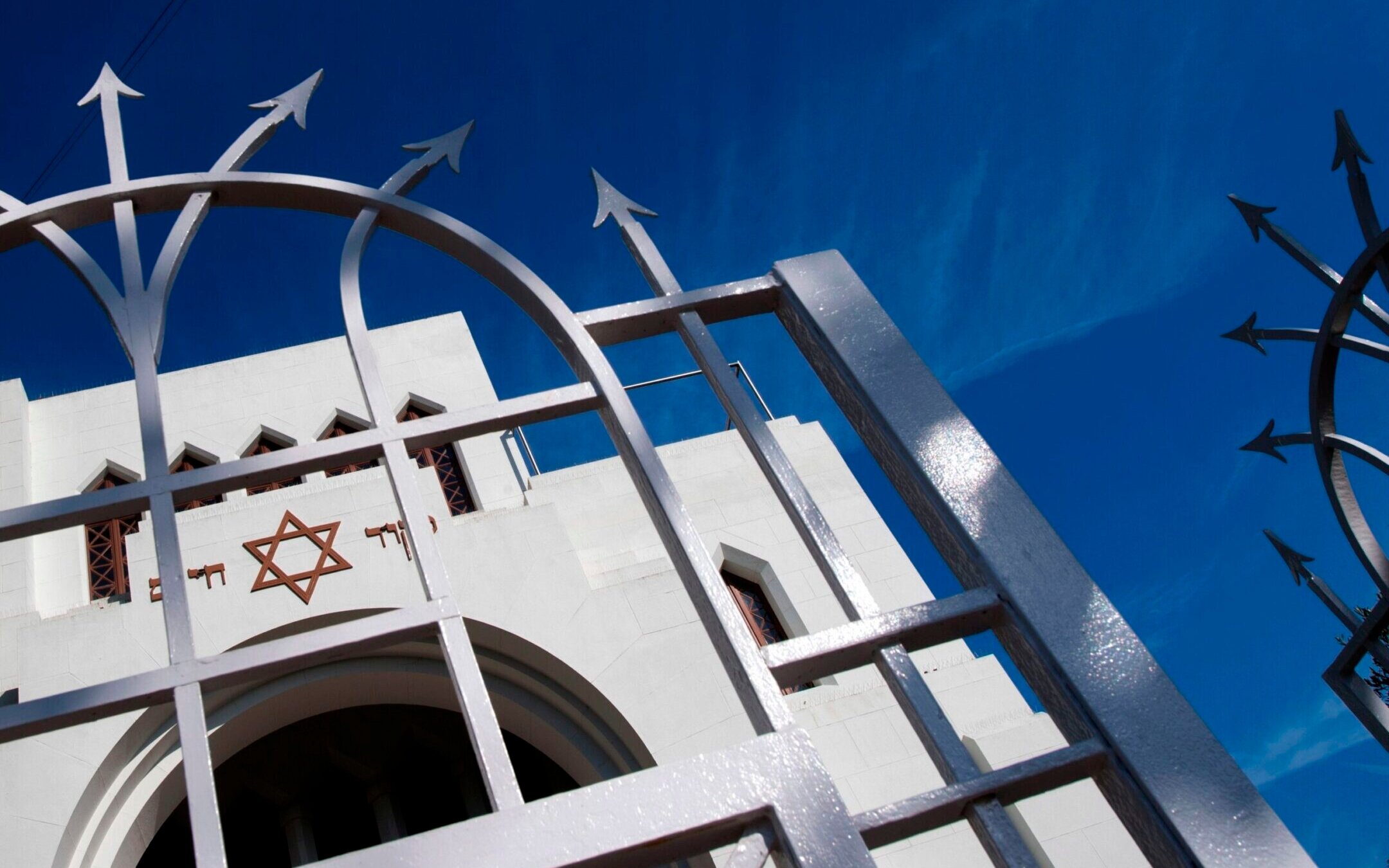Portuguese court loosens rules for rabbi charged in Roman Abramovich Sephardic citizenship probe
Rabbi Daniel Litvak had been barred from leaving the country since being arrested in March.

The Kadoorie Mekor Haim Synagogue in Porto, Portugal, as seen in 2016. (Miguel Riopa/AFP via Getty Images)
(JTA) — Since March, Rabbi Daniel Litvak has been required to appear three times at a week at the magistrate’s office in Porto, the Portuguese city where he is accused of submitting fraudulent citizenship applications for Sephardic Jews. His passports were confiscated and he was barred from contacting the lawyer who is the other defendant in the criminal case against him.
Now, an appeals court in Lisbon has ruled that Litvak does not need to abide by the stringent restrictions. The court also criticized Portuguese prosecutors for how they have handled the case against Litvak, according to the Portuguese newspaper Expresso.
“It is said that the accused, in the exercise of his functions, had privileged knowledge and connections … which allowed him to give priority to requests for the acquisition of nationality to Sephardic Jews,” the judgment said, according to Expresso. “But there is not a single fact to materialize this conclusion, namely which officials had privileged links with the applicant and, more importantly, what such knowledge and privileges consisted of.”
The decision does not end the criminal case against Litvak, an Argentine-Israeli who was arrested in March while preparing to travel to Israel. But it means he is free to leave the country, and it deals a significant blow to the prosecution of a case that a Porto Jewish leader called “the greatest attack against a Jewish community in Europe in the 21st century.”
Litvak’s arrest was related to inquiries by multiple Portuguese agencies into how Roman Abramovich, a Russian Jewish oligarch, was able to gain Portuguese citizenship under the country’s 2013 law allowing naturalization for descendants of Sephardic Jews. The law represented an attempt to atone for the Inquisition, a campaign of religious persecution in Spain and Portugal in the 16th century that forced tens of thousands of Jews to emigrate, hide their Jewish identity or denounce it altogether.
The government delegated the task of vetting applications for citizenship to two groups, the Jewish Community of Lisbon and Litvak’s organization in Porto. Tens of thousands of applicants have become Portuguese citizens under the law — which helped turn Porto into a Jewish destination — and with their fees of 250 euros each, the applicants have helped reverse the local Jewish community’s cash-flow challenges.
Abramovich’s citizenship — which gave him a European Union passport for the first time — raised questions because most Russian Jews are Ashkenazi and do not have Sephardic roots. But Litvak said in January that he was certain an investigation would show that his organization had assessed Abramovich’s application as it would anyone else’s.
Litvak’s arrest several weeks later on charges of tax fraud, falsification of documents, money laundering and other crimes took place shortly after Russia invaded Ukraine, bringing to the fore questions about whether Russians such as Abramovich with close ties to President Vladimir Putin could flee their country.
The ensuing case has drawn attention to divisions between the communities in Porto and Lisbon. In June, the head of the Jewish Community of Porto said in a letter to lawmakers that the probe into Litvak and the community was “the greatest attack against a Jewish community in Europe in the 21st century,” and “was perpetrating a “Holocaust against families.” A former leader of the Jewish community of Lisbon publicly dismissed Senderowicz’s allegations as baseless and “absurd.”
After Litvak’s arrest, his group announced that it would not process any more Sephardic citizenship applications, leaving only the Jewish Community of Lisbon with the right to naturalize the descendants of Sephardic Jews. It is unclear how many applications are currently pending with the Jewish Community of Porto, which has handled thousands of such applications since the citizenship law went into effect in 2015.
This article originally appeared on JTA.org.














